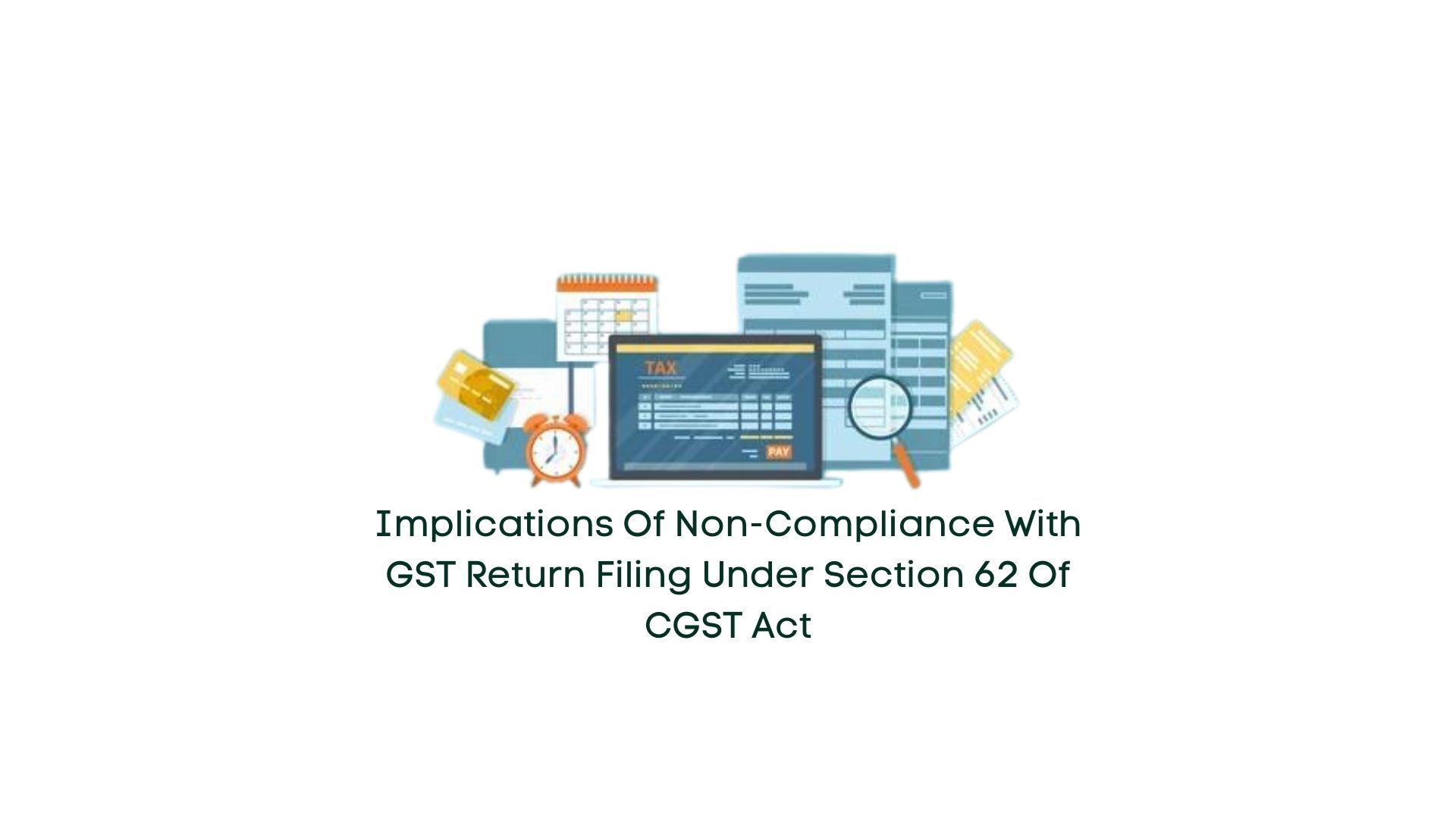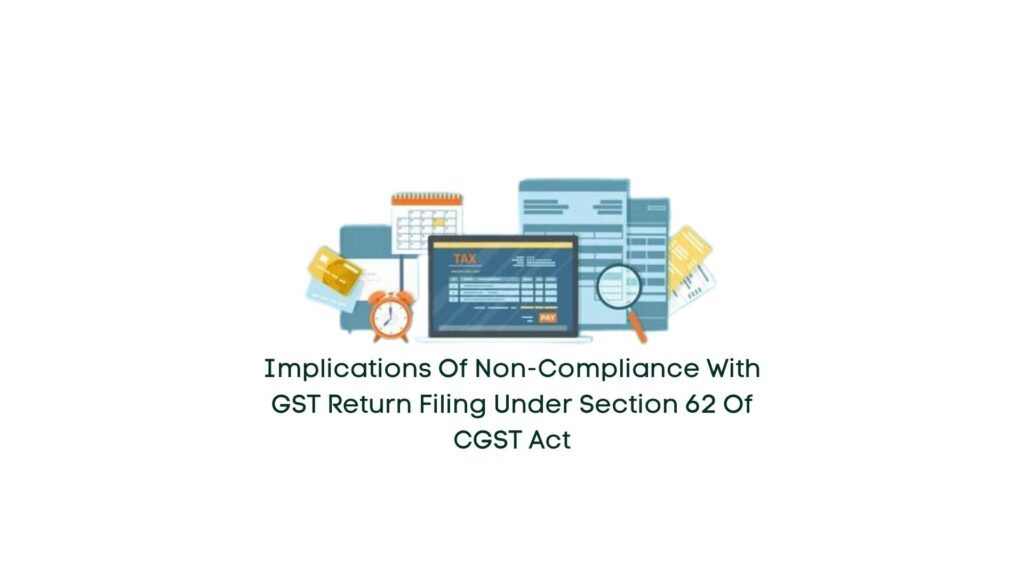
26 Mar Implications of Non-Compliance with GST Return Filing under Section 62 of CGST Act

The Goods and Services Tax (GST) regime, implemented in India in 2017, mandates registered taxpayers to regularly file returns to declare their taxable supplies and corresponding tax liabilities. However, failure to comply with this obligation can lead to significant consequences under Section 62 of the CGST Act.
Understanding Section 62 of CGST Act:
Subsection (1):
- Non-Filing Obligations: This subsection comes into effect when a registered taxpayer fails to file the prescribed return under Section 39 (monthly return) or Section 45 (annual return), even after receiving notice under Section 46.
- Authority of Proper Officer: The designated official empowered by the government can assess the tax liability in the absence of a return by estimating it to the best of their judgment, based on available or gathered information.
- Assessment Order Issuance: The officer issues a formal assessment order (Form GST-ASMT 13) determining the estimated tax liability, interest, and any applicable penalties.
- Time Limit: The assessment order must be issued within five years from the due date for filing the annual return for the relevant financial year.
Subsection (2):
- Rectification Opportunity: Taxpayers have a chance to rectify non-filing by submitting a valid return within 30 days of receiving the assessment order, leading to the withdrawal of the order.
- Continued Liabilities: Even if the assessment order is withdrawn, the taxpayer remains liable to pay interest and late fees as per Section 50(1) and Section 47 of the CGST Act, respectively.
Additional Provisions:
- Extension for Filing: Taxpayers have an initial 30-day window to file a return after receiving the assessment order, with an option for an additional 60 days by paying an additional late fee.
- No Double Jeopardy: Acceptance of the best judgment assessment and payment of determined tax precludes reassessment for the same period.
Penalties under Section 62 of CGST Act:
- Interest: Interest is levied on the assessed tax liability as per Section 50(1) of the CGST Act.
- Late Fees: Additional late fees are charged under Section 47 for each day of delay in filing the return.
- Potential Prosecution: Severe cases of non-compliance may lead to criminal prosecution under Section 132 of the CGST Act.
Consequences of Non-Compliance under Section 62:
- Assessment Order Issuance: The proper officer issues an assessment order specifying the estimated tax liability, interest, and late fees payable by the taxpayer.
- Impact on Reputation: Non-compliance can negatively affect the taxpayer's business reputation and future opportunities.
Key Points of Section 62:
- Applicability: Applies to registered persons failing to file returns under Section 39 or Section 45.
- Assessment by Proper Officer: The officer estimates tax liability based on available information within a specified time frame.
- Time Limit for Assessment: Assessment can be initiated within five years from the due date for furnishing the annual return.
Relief for Non-Filers:
- Rectification Window: Section 62(2) allows non-filers to rectify by filing a valid return within 30 days of receiving the assessment order, with an option for an extended period by paying additional late fees.
Conclusion:
Section 62 of the CGST Act serves as a deterrent against non-filing of GST returns, empowering authorities to assess tax liability and impose penalties. However, it also provides an opportunity for rectification within a stipulated time frame, albeit with certain consequences. Taxpayers are strongly advised to adhere to prescribed deadlines to avoid unnecessary assessments, penalties, and legal complications.


No Comments